Do You Need a Second Phone Line? 7 Signs It’s Time
Discover 7 signs it’s time for a second phone line. Learn how Supa Dial helps you keep client calls professional, protect your privacy, and stay connected at home or abroad.

Ever feel like your single phone number is doing too much? Between work calls, family chats, online shopping verifications, and the occasional spammer interrupting dinner, it’s easy to lose control. That’s where a second phone line can make life simpler.
With an extra line, you can separate personal and professional conversations, keep your real number private on dating apps or marketplaces, and maintain a professional image without juggling multiple devices. Thanks to modern virtual number providers like Supa Dial, getting that second line is easier than ever. You can activate one online in just minutes.
In this guide, we’ll walk through 7 clear signs you might need a second phone line, explore your options, and show how Supa Dial makes the process private, affordable, and flexible.
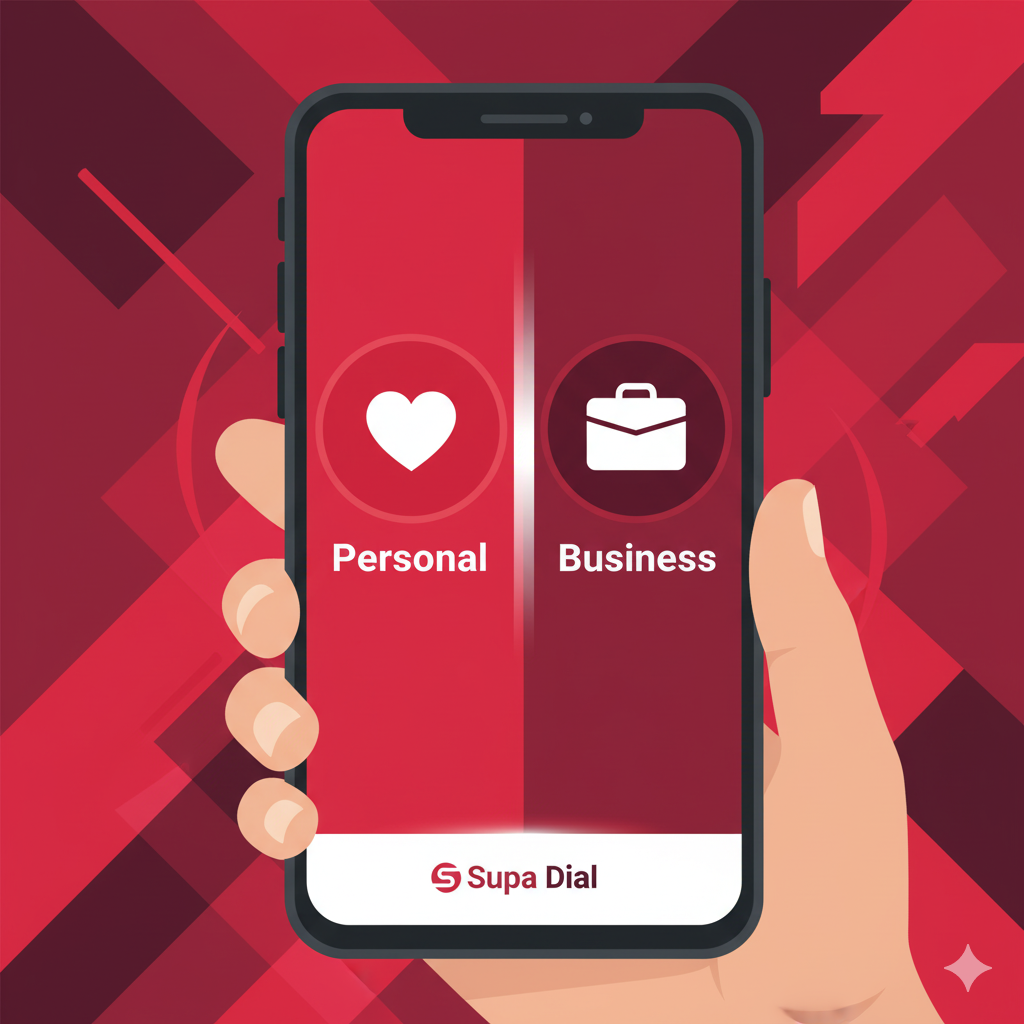
Why You Might Need a Second Phone Line
Keeping a single number for everything might seem convenient, but it's often a recipe for frustration, distraction, or privacy vulnerabilities. Below are three compelling reasons to consider adding a second line, and how Supa Dial helps solve each one:
Significantly Reduce Spam and Robocalls
Modern robocall volumes are staggering. In July 2025, Americans received over 4.3 billion robocalls, averaging 1,666 calls per second. That’s despite recent enforcement efforts, the nuisance remains persistent.. These calls often flood your inbox, annoy your voicemail, and blur the line between important and spam.
A second line, especially through a provider like Supa Dial, lets you filter out spam without compromising your personal number. When spam levels grow too high, you can deactivate or replace the virtual number with minimal fuss and keep your primary line spam-free.
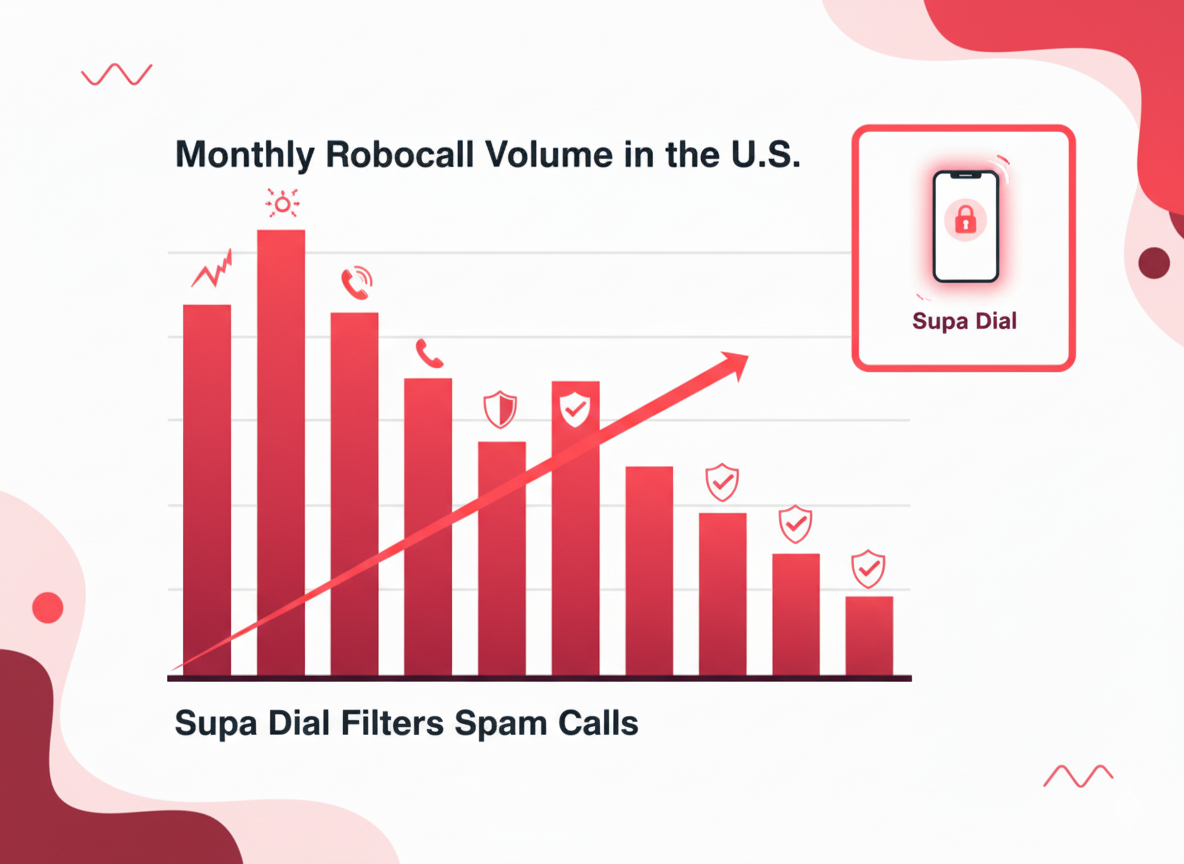
Keep Business and Personal Calls Clearly Separated
As side hustles and remote work become commonplace, mixing personal and business calls on one device can be overwhelming. A small business owner might work significantly longer hours; half of all small business owners reported working more hours in 2022 than they used to. That workload conflict can physically and psychologically bleed into your personal life.
A second line through Supa Dial introduces clarity. Custom greetings and call routing mean work calls don’t interrupt family time. When your schedule changes, you can pause notifications with a flick or mute them entirely without turning off your phone.
Stay Secure When Sharing Contact Info Publicly
Whether you're renting out a room, selling on a marketplace, or swiping on a dating app, sharing your real number carries risks. Data breaches often leak contact details, making your number vulnerable to persistent spam or misuse.
A second number provides a buffer, shielding your real identity and letting you discard the temporary line if it becomes exposed. You get reassurance without sacrificing accessibility.
Looking for a smarter way to manage when, how, and who can reach you? Supa Dial helps you keep your real number private, secure, and focused, so you can stay connected on your terms.
7 Signs It’s Time to Get a Second Phone Line
Not everyone realizes they need a second phone line until problems start piling up. These signs highlight the real-world situations where a dedicated line can make the difference between staying organized and being overwhelmed.
Your Phone Never Stops Buzzing With Unknown Numbers
Unwanted calls remain a major disruption. If your phone is constantly interrupted by unknown or suspicious callers, it may be time to divert those to a second line.
With Supa Dial, you can assign a dedicated number for external inquiries while keeping your main line private and undisturbed.
You Keep Missing Client Calls Among Personal Notifications
When work and personal conversations share the same inbox, important messages are easily lost. A potential client’s voicemail can end up sandwiched between social media notifications, leaving opportunities unanswered.
A separate business line through Supa Dial ensures critical communications stay visible, with custom voicemail and routing options that prevent professional calls from being overlooked.
Your Side Hustle Is Reaching the Next Level
Launching a business on platforms like Etsy, Upwork, or through private coaching often begins with using a personal number. But as activity grows, the lack of separation creates confusion and blurs boundaries.
A second line provides credibility and structure, helping freelancers and entrepreneurs manage their workload without sacrificing privacy or professionalism.

You Have Experienced Problems Sharing Your Number Online
Once your real number is posted on a marketplace, rental listing, or public forum, it can circulate indefinitely. Many users discover ongoing spam or even harassment long after the original interaction.
Using a disposable or dedicated number for these situations limits exposure. If unwanted calls persist, you can replace the line without disrupting your personal contacts.
You Want More Control Over Your Personal Safety in Dating
Exchanging numbers is often part of moving a dating conversation forward, but sharing your real number too early can compromise your safety. A dedicated second line allows you to maintain privacy and choose when, or if, you reveal your primary number.
Supa Dial provides the flexibility to disable or change your secondary number instantly if needed.
You Were Surprised by an Expensive Roaming Bill
International travel often brings hidden costs, especially when relying on traditional mobile carriers. A single trip abroad can generate charges that rival the cost of a virtual number for an entire year.
Supa Dial enables you to choose local numbers abroad, reducing expenses and ensuring colleagues, friends, or family can reach you as if you were nearby.
Your Work Requires Compliance With Communication Regulations
In fields such as healthcare, finance, or law, strict rules govern how calls and messages are handled. Regulations like HIPAA, GDPR, and the Telephone Consumer Protection Act (TCPA) place heavy responsibilities on professionals to safeguard information.
A second line, equipped with encrypted calls and secure account controls, helps maintain compliance and reduces the risk of mixing personal and regulated communications.
Types of Second Phone Line Solutions
Getting a second phone line doesn’t mean juggling two physical phones or paying for an extra SIM card. Today, most additional lines are virtual, working through internet-based technology like VoIP (Voice over Internet Protocol) and call forwarding.
When someone dials your second number, the call routes securely to your chosen device, whether that’s your smartphone, laptop, or browser. To the caller, it looks just like a regular phone number, but your real digits stay private.
There are three main types of solutions for setting up a second line:
Browser-Based Services
Browser-based platforms let you set up and manage a second phone line directly from your web browser without installing additional software. This option works well if you prefer to keep business calls on your computer or use shared devices.
The biggest advantage is flexibility. You can log in from any computer with internet access, and your line is available immediately. On the downside, you need to keep your browser open to stay connected, and call quality can vary depending on your internet connection.
App-Based Services
App-based solutions install directly on your mobile device, allowing calls to look and feel like regular cellular calls. Many also include texting, voicemail, and contact management from the same app.
This type of service is ideal if you’re often on the move and want mobile-first convenience. Notifications arrive instantly, even when the app isn’t open, which ensures you don’t miss important calls.
Established providers in this space include Burner, Hushed, and TextNow. Supa Dial also provides app-based access, giving users the option to manage calls, texts, and settings seamlessly across devices.
Disposable or Temporary Numbers
For short-term needs, such as listing items online, posting a classified ad, or signing up for services you don’t fully trust, disposable numbers are a practical solution. These numbers forward calls to your device for a limited period and then expire.
While they offer privacy and protect your main number from spam, they usually come with fewer features, like limited voicemail or no call analytics. This makes them best suited for one-off situations rather than ongoing professional use.
Best Ways to Add a Second Phone Line
In today’s hyper-connected world, adding a second phone line is often more efficient than managing multiple devices. Whether you want to protect your personal number, expand your professional reach, or avoid costly roaming, the right solution can make communication seamless.
The demand is only growing. A 2025 MarketsandMarkets report estimates that the global cloud telephony services market will reach $56,005.8 million by 2030, driven by businesses and individuals moving away from traditional carriers in favor of flexible, internet-based systems.
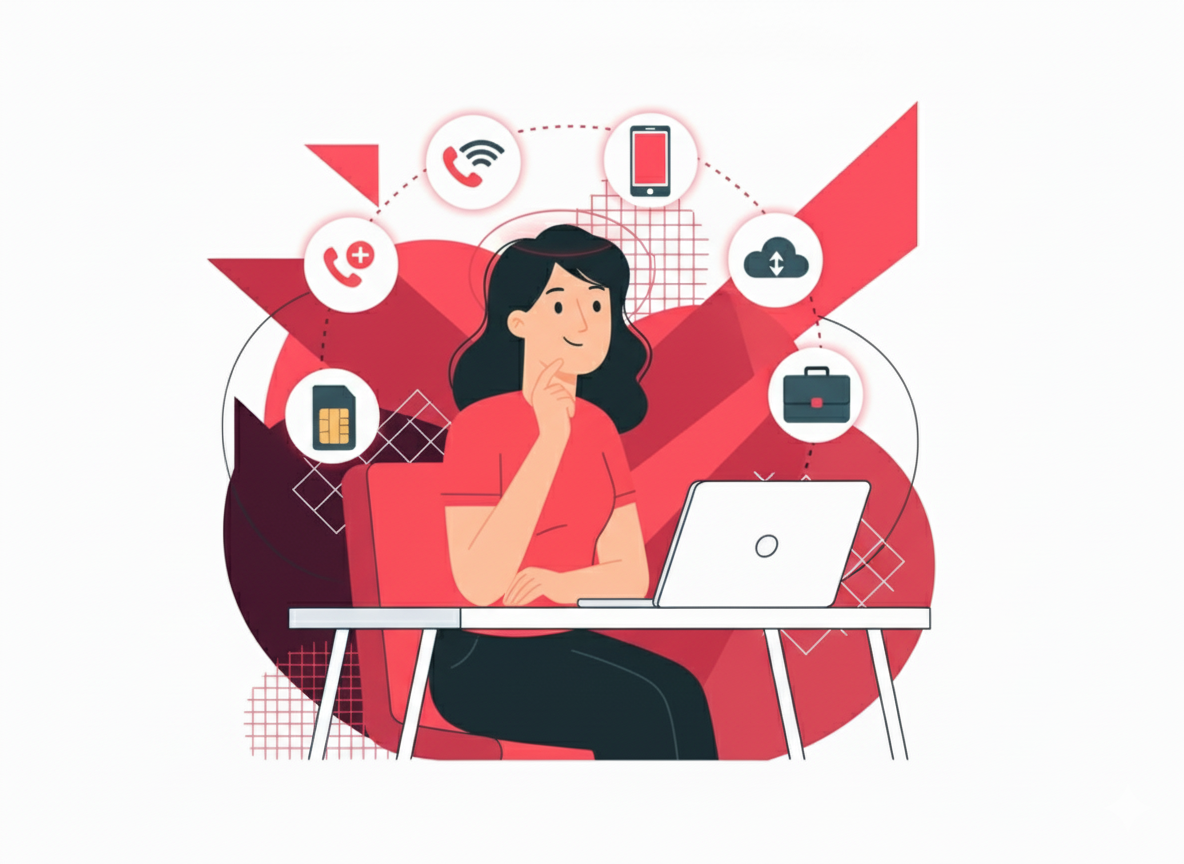
Use a Virtual Phone Number Provider
Virtual phone numbers provide a simple way to add a second line without using a physical SIM card. They can be set up as local, toll-free, or international numbers, with calls routed to your device of choice, like a smartphone, tablet, or desktop.
Advanced features like voicemail-to-email, call forwarding, and team extensions make them particularly useful for professionals and small businesses.
Pros
- Keeps your personal number private
- Provides professional features like IVR menus and analytics
- Easily scalable for teams or side hustles
Cons
- Dependent on the internet quality
- Ongoing subscription cost compared to free apps
Popular Choices
- Supa Dial – Secure second line with browser, mobile, and temporary options
- CallHippo – Known for global coverage and business tools
- OpenPhone – Startup-friendly with integrations
- Dialpad – AI-driven call transcription and routing
- Google Voice – Free basic option for individuals
- VirtualPhone – Wide international number availability
- Fanytel – Cost-effective for users in the Middle East and Africa
Use an Encrypted Messaging App With Calling Features
Many messaging apps now support internet-based calling. Options like WhatsApp, Signal, and Telegram allow voice and video calls without revealing your phone number directly. These services rely on encryption, giving users added security for personal or informal communications. However, both parties typically need to be on the same app, which limits flexibility.
Pros
- End-to-end encryption protects conversations
- Free to use on most devices
- Available globally with quick setup
Cons
- Both caller and receiver must use the same app
- Limited business features (no call routing, CRM integration, etc.)
Popular Choices
- Supa Dial – Encrypted calls and texts with a dedicated second number
- WhatsApp – Widely used for global communication
- Signal – Strongest privacy safeguards with minimal data collection
- Telegram – Versatile for group calls and cross-platform use
Use a Temporary or Disposable Number
Disposable numbers provide short-term access for specific situations, such as posting on online marketplaces, signing up for a service, or managing dating app contacts. They forward calls for a limited time before expiring, offering strong privacy but fewer features than permanent solutions.
Pros
- Protects your real number from spam and misuse
- Affordable and commitment-free
Cons
- Limited features (voicemail, analytics often excluded)
- Short lifespan (hours or days)
- Call quality may vary by provider
Popular Choices
- Supa Dial (Short-Term Plan) – Temporary number available within seconds
- Burner – Numbers with customizable lifespans
- Hushed – Disposable numbers in 40+ countries
- TextNow – Free ad-supported calling and texting
Quick tip: For ongoing professional use, consider a permanent virtual number instead of disposable options.
Quick Comparison Table
Side-by-Side Comparison of Popular Temporary & Disposable Number Services
We reviewed leading temporary and disposable number providers to see how they stack up in cost, features, and ease of use.
The tables below give you a quick way to compare platforms side-by-side, so you can find the best fit for short-term projects, online sign-ups, or privacy-focused communication when you want to know if you know if it’s time for you to get a second phone line.
Virtual Phone Number Providers
Encrypted Messaging Apps
Temporary / Disposable Numbers
Pricing and features are based on provider websites as of August 2025 and may change over time.
How to Choose the Right Provider for You
Finding the right provider for your second phone line is about more than just signing up for the first service you see.
The right choice depends on your goals, whether that’s managing business calls, keeping personal details private, or staying reachable while traveling. Here are the key factors to evaluate:
Pricing & Value
Price is an important consideration, but value is determined by what comes with it. Some providers advertise low monthly rates but charge extra for essentials like voicemail transcription, call recording, or international minutes.
Others offer inclusive plans that cost more upfront but cover everything you’ll realistically need. Supa Dial provides flexible pricing tiers, allowing individuals to choose affordable entry-level plans while businesses can scale into packages that include unlimited inbound calls and advanced features.
Evaluating both short-term affordability and long-term savings ensures you avoid unexpected costs later.
Features
A second line should do more than just ring. Compare the tools that each provider includes. At the basic level, you should expect calling, texting, and voicemail. More advanced providers add features like call forwarding, IVR menus, call analytics, and shared inboxes for teams.
For example, Supa Dial enables users to manage calls, texts, and even temporary numbers from one dashboard, making it easier to adapt the service to both personal and business needs.
Matching feature sets to your specific goals prevents you from overpaying for unused tools or struggling without essentials.
Integrations
If your work relies on software like CRMs, scheduling platforms, or project management tools, integration can be a deciding factor. Seamless integrations eliminate the need to juggle multiple apps by allowing calls, texts, and voicemails to flow directly into the systems you already use.
While not every provider offers this capability, Supa Dial is building toward integrations with common business tools to help users centralize communication. Checking this ahead of time ensures that your new second line will fit smoothly into your daily routine rather than creating new silos.
Call Volume
Think about how many calls you handle in a typical week. Light users may do fine with pay-as-you-go or basic plans, but side hustlers, freelancers, and businesses often outgrow these quickly. Switching providers mid-growth can be disruptive, so it’s better to select a service that can scale with you.
Supa Dial’s scalable plans make it easy to start small and upgrade as call traffic increases, without losing your number or needing to migrate data. Estimating your volume in advance saves both money and operational headaches.
Privacy & Security
Privacy should never be an afterthought, especially with sensitive information at stake. Regulations like GDPR in Europe and CCPA in California impose strict rules on how personal data is handled, while industries like healthcare must comply with HIPAA requirements.
Not all providers are transparent about how they secure calls or store data. Supa Dial uses encrypted connections, secure account management, and compliance-ready frameworks to protect users’ communications.
Choosing a provider with clear privacy commitments helps safeguard your information and builds trust with clients or contacts.
How to Set Up Your Second Number with Supa Dial
Setting up your second number is quick and easy, letting you start making and receiving calls without sharing your real number. You can complete the process entirely online, whether you’re on a desktop or mobile device.
1. Visit SupaDial.com and sign up or log in
Create an account in just a few clicks. If you already have one, simply log in to your dashboard.
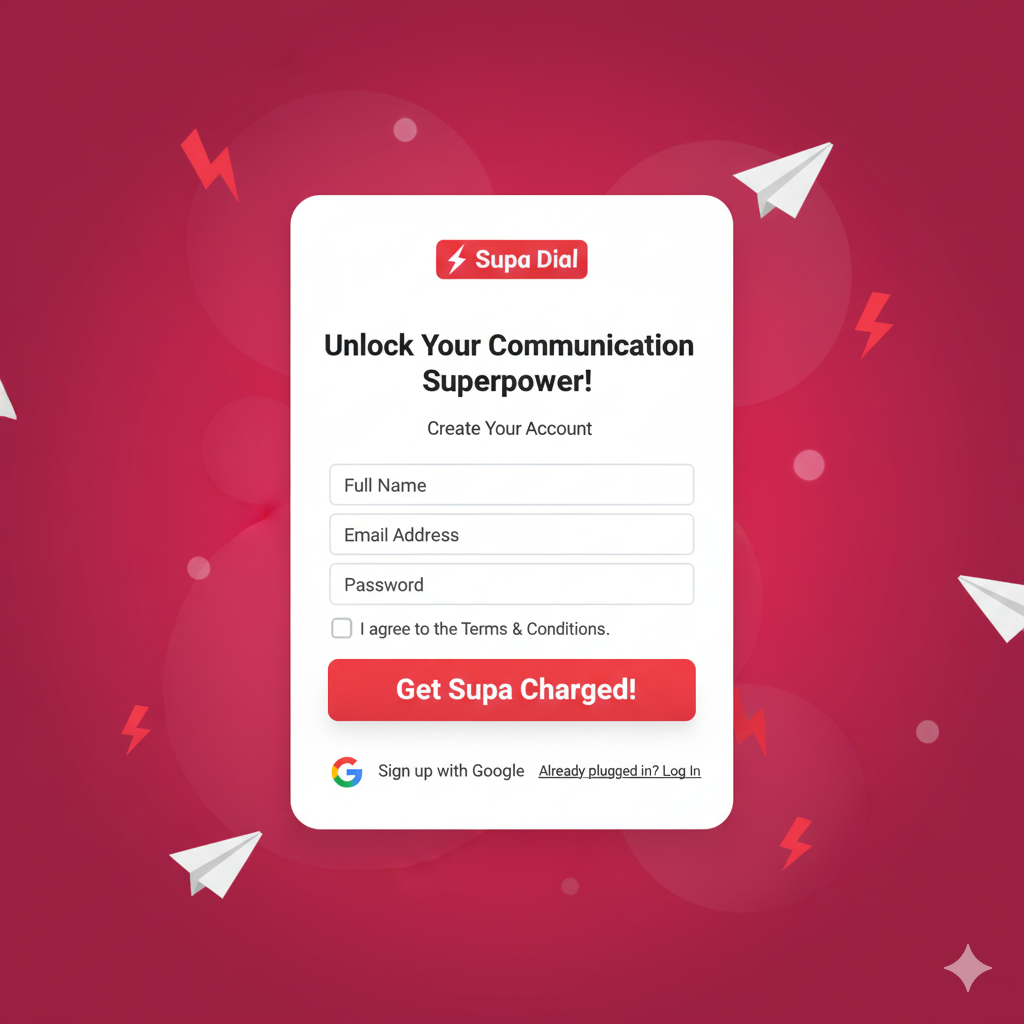
2. Choose your preferred number
Select a local or international number based on where you plan to use it. You can opt for a mobile or landline format depending on your needs.
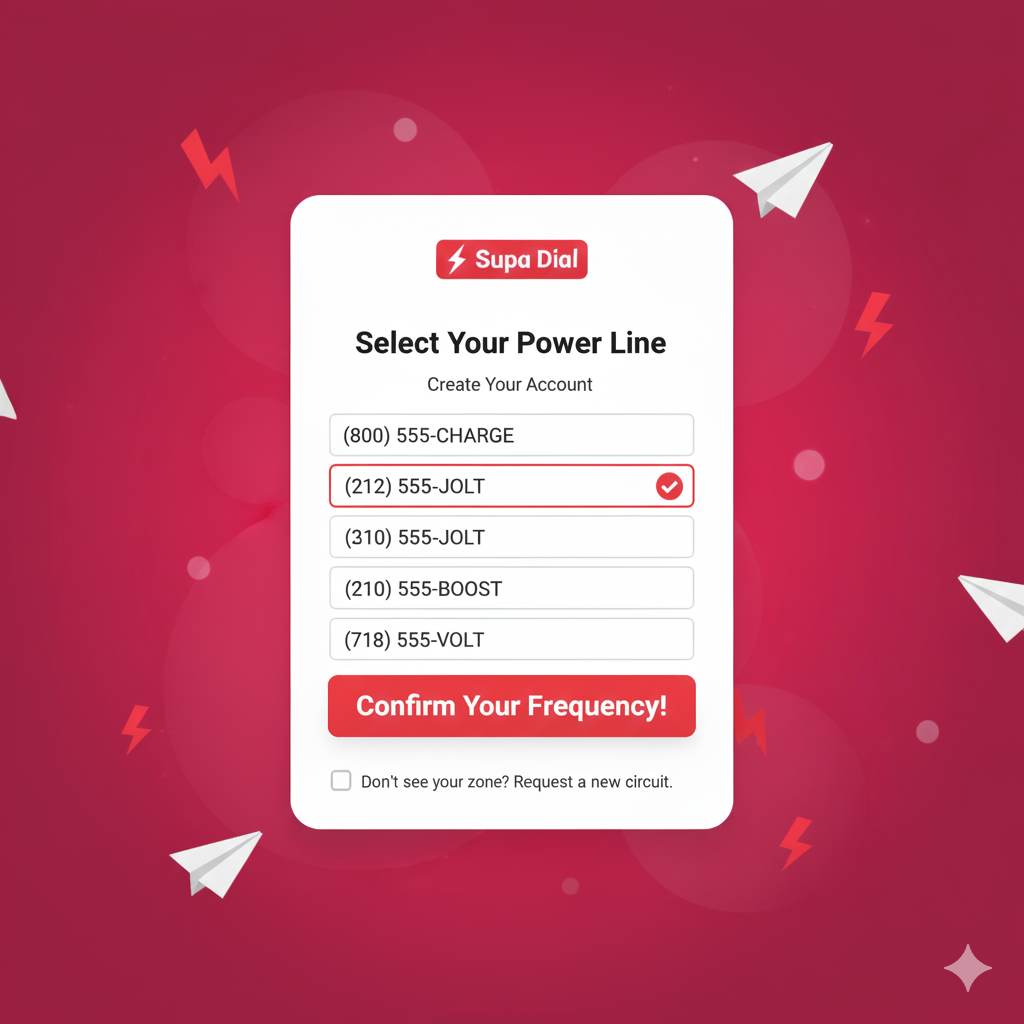
3. Pick your plan
Match your choice to your expected usage, whether that’s a basic plan for occasional calls or a more feature-rich option for frequent communication.
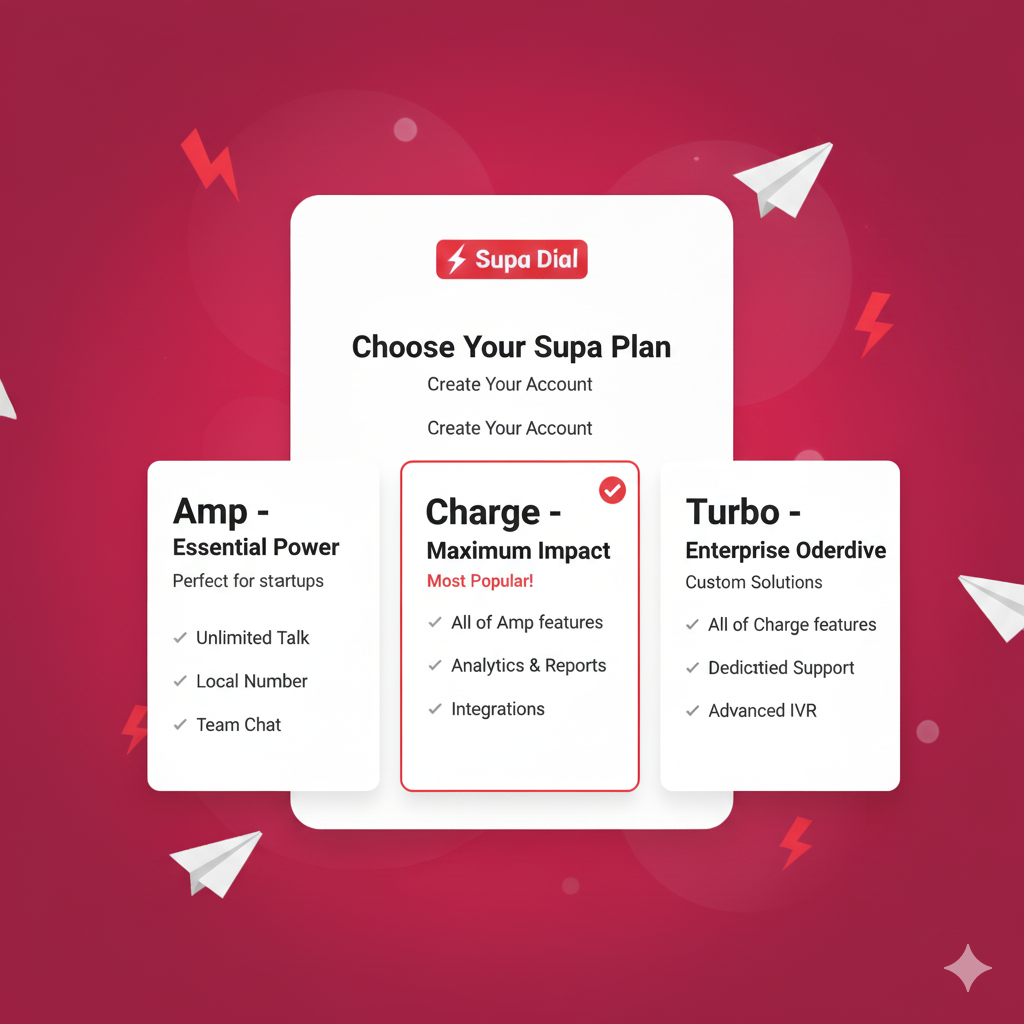
4. Configure your settings
Set up call forwarding, voicemail, or browser-based calling so you can manage calls in the way that’s most convenient for you.
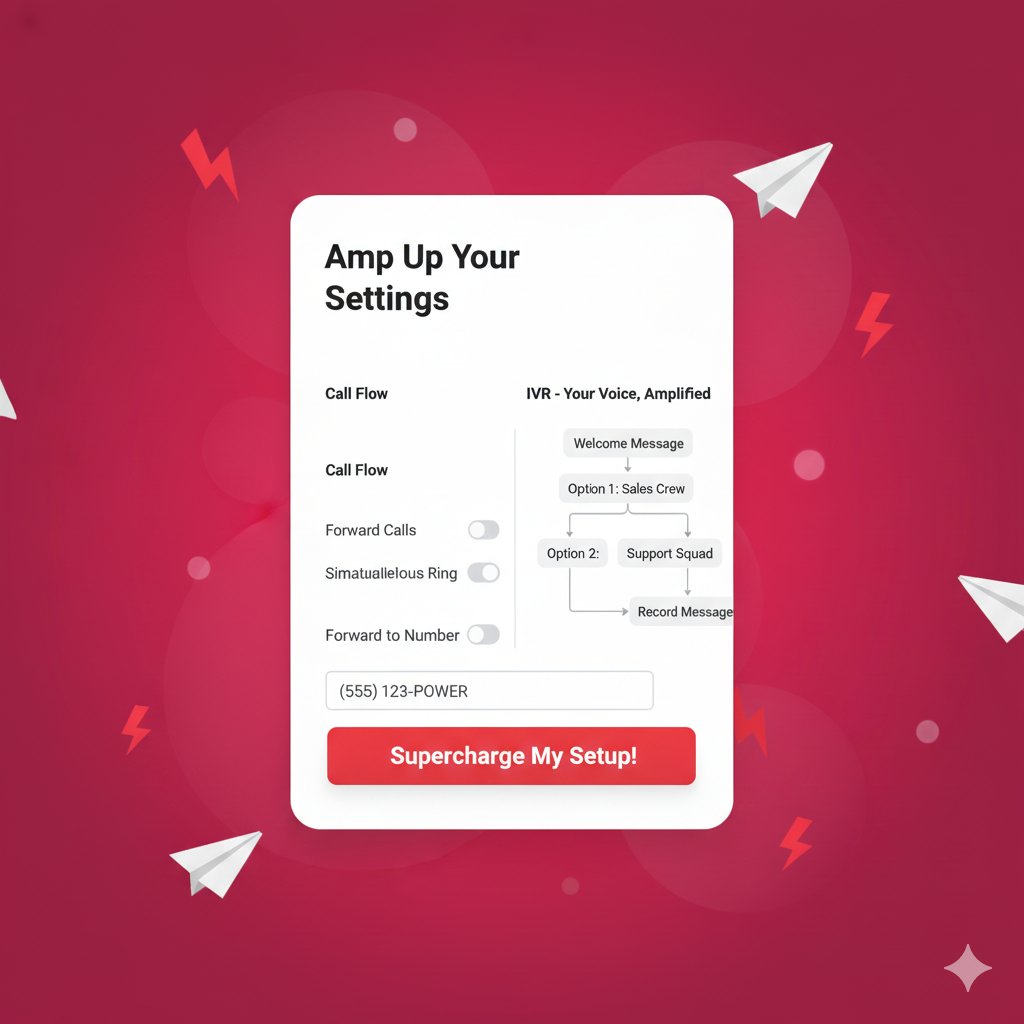
5. Complete payment and activate your number
Once confirmed, your new number is ready to use instantly.
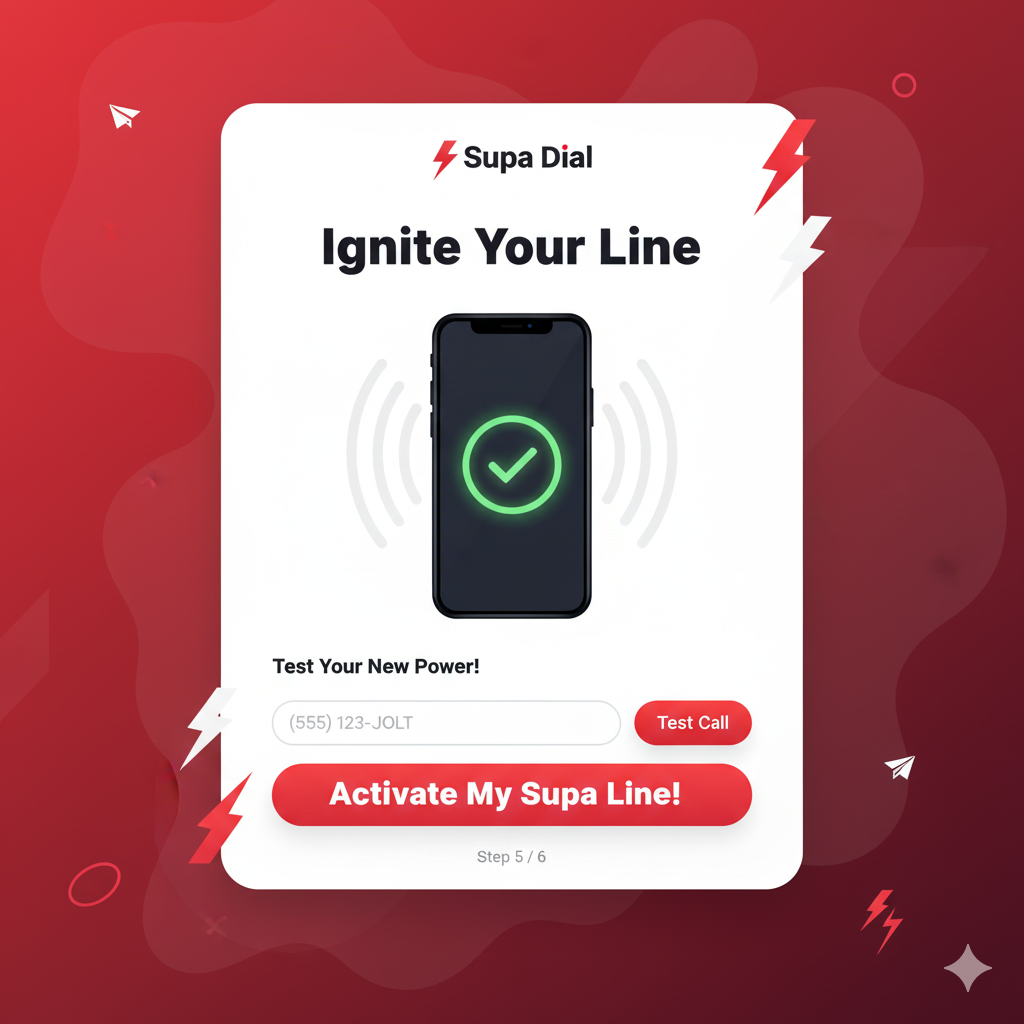
6. Start Using Your Number
Once your second line is active, use it for the situations that prompted you to get one in the first place. This could mean sharing it with clients, listing it on your business website, or using it for marketplace and travel transactions.
By directing these interactions to your new line, you keep your personal number private and maintain better control over who can reach you.
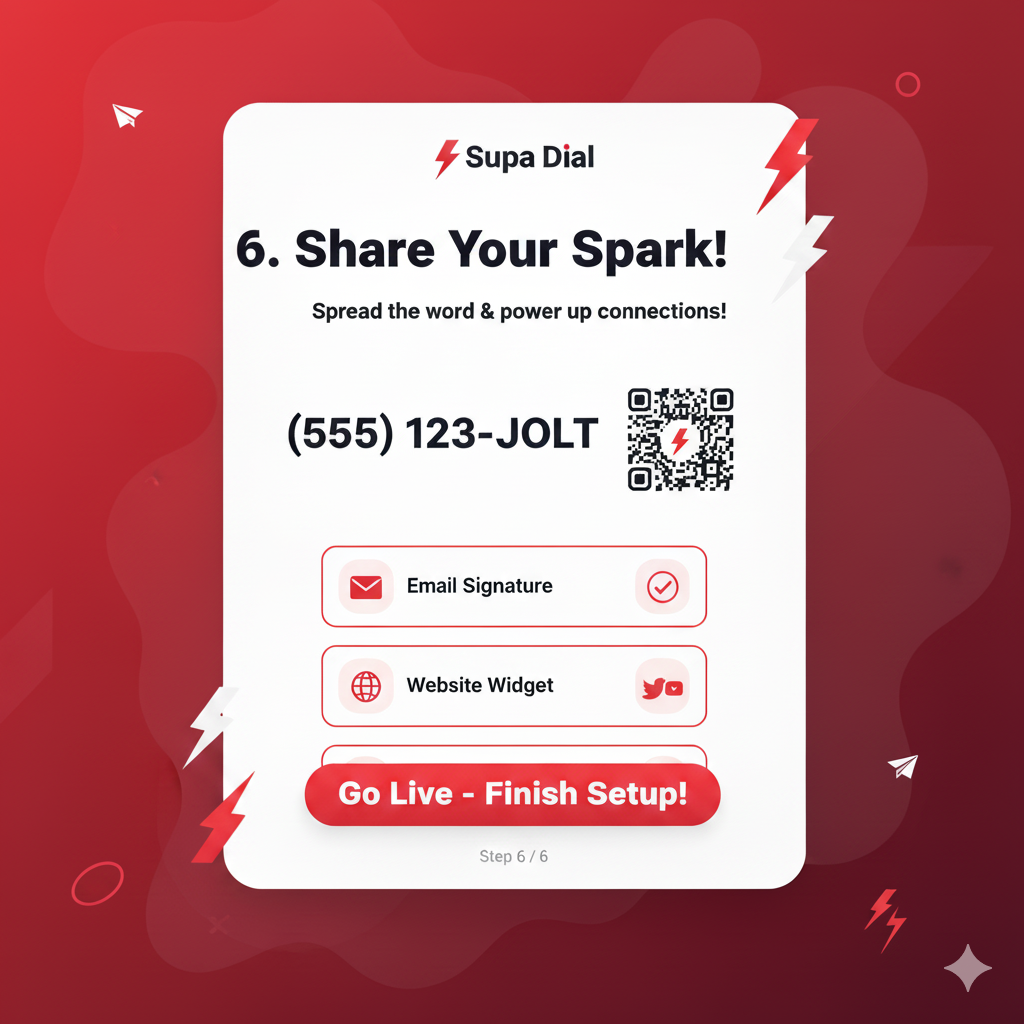
💡 Pro Tip: You can also use Supa Dial’s browser calling feature if you prefer to keep calls off your personal device while still being reachable.
Security & Privacy Best Practices for Using a Second Phone Line
Adding a second phone line can improve flexibility and privacy, but protecting your communications requires more than just choosing a convenient provider. Following these best practices will help safeguard both personal and professional data from misuse.
Choose a Reputable Provider
Not all second-line services are created equal. Opt for providers with a proven track record in security and reliability. Supa Dial, for example, uses end-to-end encryption, browser-based calling, and secure account controls to help protect user data.
Reputable providers should also undergo independent reviews or audits to verify that their systems meet high security standards. This reduces the risk of data breaches and gives you peace of mind when using your second number.
Enable Two-Factor Authentication (2FA)
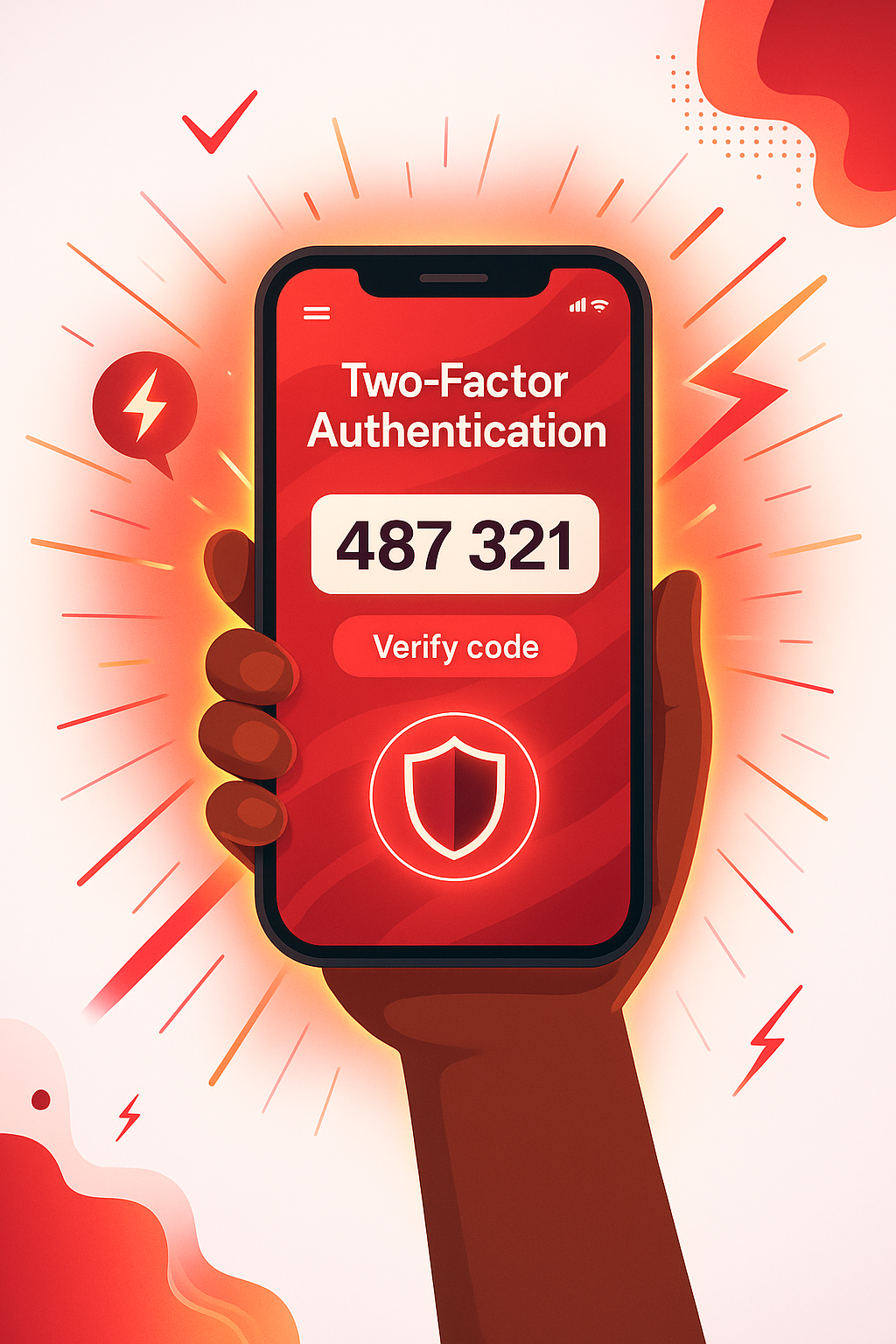
Two-factor authentication adds an important layer of protection. Even if your password is compromised, attackers cannot access your account without the secondary code from an authenticator app or text.
Supa Dial supports 2FA across accounts, giving users a stronger defense against unauthorized access. Always activate this feature when available to keep your second line secure.
Avoid Unknown Free Apps
Free apps may seem convenient, but many make money by collecting or selling user data. Some even use outdated or nonexistent encryption, putting calls and texts at risk. Before choosing any provider, review their privacy policy and confirm whether they’ve undergone external evaluations.
Sticking with recognized services, rather than unfamiliar free apps, helps ensure your second line isn’t a weak point in your digital security.
Keep Your App Updated
Software updates are more than new features; they often patch critical vulnerabilities. According to the National Institute of Standards and Technology (NIST), outdated applications significantly increase exposure to cyberattacks.
Supa Dial prompts users to update regularly, ensuring the latest security protections are in place. Enable automatic updates where possible to avoid gaps in coverage.
Review Permissions Regularly
Many calling and messaging apps request access to contacts, location, or files. While some of these are necessary, others may not be. Limiting permissions to only what the app requires helps reduce data exposure.
Supa Dial allows users to manage permissions granularly, ensuring you remain in control of what information is shared. Regular reviews of app settings are a simple step toward stronger privacy.
Log Out From Shared Devices
If you access your second line from a public or shared device, always log out and clear saved login data.
This prevents others from seeing messages or call records once you leave. Avoid using “remember me” options on non-personal devices to further reduce the risk of unauthorized access.
Legal Considerations When Using a Second Phone Line
Alongside technical safeguards, it is important to remain aware of legal requirements that may apply when using a second phone line.
Call Recording Laws
Call recording is regulated differently around the world. Some jurisdictions require one-party consent, while others demand that every participant agree before recording.
Failing to follow these rules can result in fines or legal action. Always confirm local regulations before enabling call recording.
(Source: Federal Communications Commission)
Data Protection and Privacy Regulations
Frameworks like GDPR in Europe and CCPA in California govern how personal data is handled. If your second phone line is used for work or customer communication, ensure your provider complies with these standards. Supa Dial is built with GDPR and CCPA compliance in mind, making it easier to stay aligned with global privacy expectations.
(Sources: European Commission, California Department of Justice)
Restrictions on Virtual or VoIP Numbers
Some regions restrict the use of VoIP numbers or require them to be registered with telecom authorities. Confirm these requirements in advance to avoid service interruptions. Awareness of local rules helps ensure continuity and prevents penalties.
Anti-Spam and Telemarketing Laws
Laws such as the U.S. Telephone Consumer Protection Act (TCPA) prohibit sending marketing calls or texts without explicit consent. Violating these rules can lead to steep fines and reputational damage. Providers and users alike should follow clear opt-in practices to remain compliant.
(Source: Federal Communications Commission)
Consult Legal Experts When Needed
Telecom and privacy laws vary widely across jurisdictions. For individuals or businesses expanding into new markets, legal consultation is often the safest approach. This helps prevent compliance issues that may otherwise lead to costly disputes.
If you are looking for a second phone line that supports both privacy and compliance, Supa Dial makes it straightforward to stay protected.
Find the Right Solution for Your Second Line
Managing everything on one phone number often leads to missed opportunities, unwanted calls, or privacy risks. If any of the seven signs we outlined sound familiar, a second line can make your life more organized, secure, and professional.
Whether you need a dedicated business number, a safer way to interact online, or a local presence while traveling, Supa Dial provides flexible options to match your situation. From personal use to enterprise-level communication, you can activate a second line in minutes and start enjoying clearer boundaries right away.
Frequently Asked Questions
Still wondering if a second phone line is worth it? These quick answers cover the basics, from cost to security, so you can decide if adding another number fits your lifestyle or business needs.
What is a second phone line?
A second phone line is an additional number that routes calls through your existing device, often using internet-based technology. It lets you keep your personal number private while staying reachable.
How much does a second line cost?
Costs vary depending on the provider and included features. Entry-level plans may start at just a few dollars per month, while advanced packages with unlimited calls and business tools cost more.
Can I use a second line for both business and personal calls?
Yes. Many providers, including Supa Dial, allow you to manage multiple lines from one dashboard, making it easy to separate personal contacts from professional communication.
Are calls secure and private?
Security depends on the provider. Reputable services use encryption, account protections, and privacy-compliant systems to keep your calls and texts safe.
Do second phone lines work internationally?
Most providers support international numbers or routing. Supa Dial, for example, lets you choose local numbers abroad so you can stay connected without high roaming costs.
